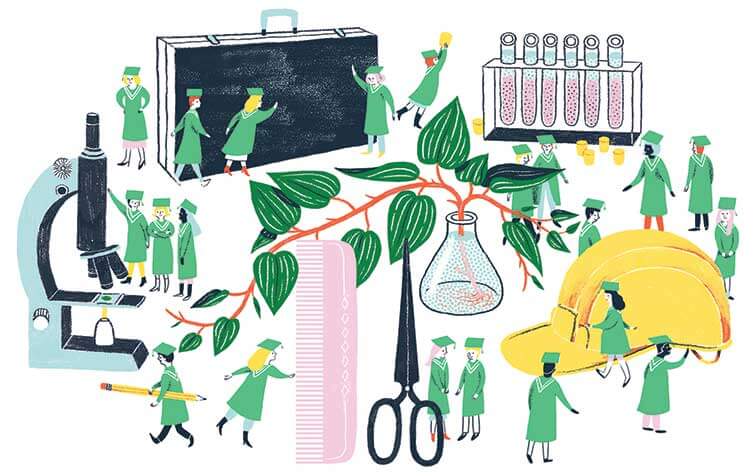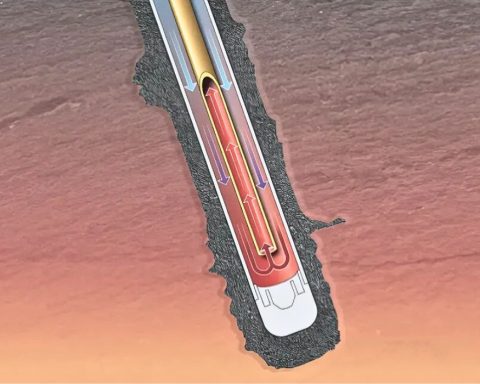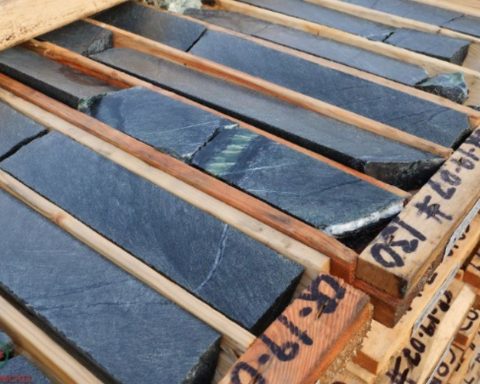Canada’s clean technology industry is growing at four times the rate of the overall economy, putting increasing responsibility on educators to prepare workers for the transition to a low-carbon future.
When it comes to post-secondary education, colleges in particular are poised to provide the job-training skills required for everything from water and soil testing to home energy retrofits and stakeholder engagement.
Colleges across Canada are making changes to their curriculum and adding instructors with sustainability and cleantech industry expertise to help educate the next generation of workers. Still, experts say more can and needs to be done to embed sustainability across the entire educational system to help meet both growing skills demand in the workforce and society’s expectation of more environmentally friendly organizations.
“All trades and professions will be affected by sustainability in the medium to long term,” says Coro Strandberg, a sustainability strategist and president of Vancouver-based Strandberg Consulting. “It speaks to the need to make sure that we are equipping future employees and future leaders with core competencies in this area.”
Job growth has been explosive in the cleantech sector alone: More than 50,000 people are employed in cleantech jobs in Canada, according to the latest industry report from Analytica Advisors – exceeding industries such as forestry and logging, aerospace, pharmaceuticals and medical devices.
It says that if job creation in the sector continues at its rate of about 8 per cent annually, 100,000 people could be directly employed in the cleantech sector before 2022. “This is an innovation-driven industry, which will continue to protect the environment and drive well-paid jobs at home for some time to come,” says the report.
What’s notable for colleges, and the education sector overall, is that Canadians aged 30 and under make up about 20 per cent of all employees in the sector. “That means that 10,000 young people already view this as an industry in which young people are welcome and needed and they are investing their time and talent in building strong careers,” the report states.
While many colleges are preparing to pump out more qualified cleantech employees, Strandberg says sustainability needs to be part of all courses, from hairdressing and hospitality through to trucking and office administration.
For example, accounting classes should include teachings on natural capital, while hair styling and hospitality courses should cover topics such as recycling and the use of more eco-friendly products.
“The college sector is responding to these issues,” says Strandberg. “All colleges are somewhere on the continuum … They aren’t lagging, but are they leading? Do they have a vision?”
Anticipating industry needs
Colleges exist to respond to the needs of the workplace, says Christine Trauttmansdorff, vice president of government relations and Canadian partnerships at Ottawa-based Colleges and Institutes Canada, which represents public colleges, institutes, cegeps and polytechnics. “They’re designed to keep up with industry and to be ahead,” she says.
As publicly funded institutions, colleges must also set an example in how they run their operations, says Trauttmansdorff. That includes being energy efficient as well as reducing their own environmental footprints.
Many colleges are walking the talk. For example, Algonquin College of Applied Arts and Technology recently installed a high-efficiency co-generation power plant, which will generate two megawatts of power – enough to cover the baseline power needs of its Ottawa campus.
Another example at the other end of the country is at the British Columbia Institute of Technology (BCIT), which has joined forces with BC Hydro to design and construct Canada’s first Smart Power Microgrid at its Burnaby campus.
Colleges try to anticipate the future needs of industry by setting up programs and initiatives to not just help them teach, but also conduct research and development. It can also become a core part of the curriculum.
“Our programs are starting even before governments set targets, based on where sustainability needs to go,” says Jennie Moore, associate dean at BCIT’s School of Construction and the Environment.
Her school’s focus in particular is around managing energy demand, which includes energy efficiency as well as integrating renewable energy technology in buildings. BCIT offers various credentials for students such as sustainable energy management, building controls and energy management and renewable energy electrical systems installation, to name a few.
“If we are building programs that are enabling industry to move forward, then that enables government to set targets and vice versa,” says Moore. “It’s about seeing what’s needed and then anticipating that … pushing just a little bit ahead of where the curve is.”
Beyond practical skills
Colleges are known for providing practical skills for tomorrow’s workforce, but there is also a focus on understanding and shaping policy and responses to it – including with sustainability studies.
At Georgian College in Barrie, Ontario, students in the environmental technology program learn about stakeholder engagement and environmental law and policy, as well as fundamentals of environmental sampling, monitoring, testing and data analysis.
“Someone in an environmental career will likely cross multiple paths. That’s what we try to focus on,” says Nicole Barbato, a faculty member at Georgian’s Environmental Technology program. “We try to get them to think about the issues and concerns business may have because, in their career, they may need to manage some of the transition [to a low-carbon economy] – whether it’s from the monitoring side of the business, regulatory or other aspects.
“It’s about bringing together diverse careers and working collectively to bring the greenhouse gas threshold down.”
Barbato says students are becoming more in tune with the latest policy and climate issues, especially after Ottawa’s new Liberal government and provinces such as Ontario and Alberta have set stricter emission targets. They want their education to be aligned with what’s happening in the real world.
“Making those connections with what we’re teaching in class and how they’ll be used in their careers is big,” she says.
Charting the sustainability course
Trauttmansdorff of Colleges and Institutes Canada says its members have a growing number of programs focused on clean energy and sustainability, with interest in areas such as wind, solar, geothermal, electric vehicles and other energy efficiency technologies and applications.
“[They] are certainly leading the way towards a transition, both in their own operations, and by training Canadians with the skills required to use and develop sustainable new technologies,” she says.
Colleges and Institutes Canada has also launched an internship program specifically geared towards matching college students with employers working in the field of clean technologies.
Meanwhile, Strandberg says colleges are working in the right direction, but they need to set more of a “strategic course” to ready themselves and the next generation of workers for the demands of a low-carbon economy.
“You don’t wait for employers to ask for this,” she says. “You want to be more proactive, rather than reactive … they need to shift to build it into their core mandate of education.”







